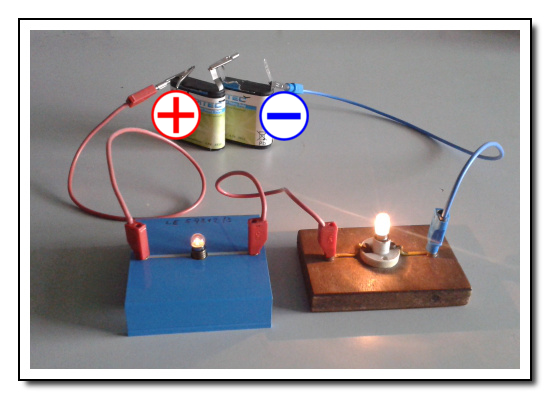Working with high voltages? Pay close attention to this!
Maybe you are slightly worried now and you might wonder whether you should do experiments (and work with voltages and amperages) or if you could get hurt. Don't worry! If you know the following rules and tipps, and if you stick to them, you are absolutely safe:
1. If you want to do experiments at home, you best use 4.5 V or 9 V batteries as voltage source.
Only use material that is meant for experiments.
If you are not sure, please first ask an adult if your materials are OK.
Here is an example for a circuit that you can build at home without any danger:

2. If the voltage is higher than 20 V, it is dangerous for our body (if our body closes the circuit).
A voltage of 20V means that there will be an amperage of over 30 mA (0,03A) - the critical value. If this amperage flows through us, it affects the cardiovascular system!
3. Don't open electrical gadgets! Even if you think that the gadget is broken and no longer functions.
Only experts should open and repair such gadgets. Immediately inform an adult if you discover that an electrical
gadget is damaged. Never touch damaged cables or other conductors!
4. Water and electrical current must never get in contact! You probably know this rule: for example you mustn't take electrical gadgets with you into the bathtub, shower or
in any other wet or humid rooms!
By all means, avoid splashing water onto electrical gadgets!
5. If you feel now 100% sure, please ask an adult to help you. Ask them to check the materials and the setup of your experiment.
